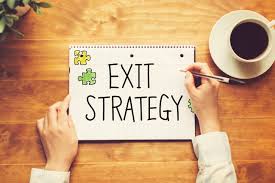Owning a business can be a high-octane yet stressful experience. You may have experienced many highs and lows whilst navigating the business sphere.
Eventually, though, you may begin to think about getting out of your business. It could be that you want to start a new business in a different industry or that you want to retire on your success! Whatever the reason, selling your business is arguably the most profitable way to leave.
Here are some tips on how to maximise the value of your business when you want to leave.
Understand your business’s worth
Before you start getting your foot out the door, it is essential to establish a realistic valuation of your business. This valuation will be a crucial leveraging point when it comes to selling your business so it is important that it is accurate to avoid hiccups in the process.
Make sure you take into account extra assets beyond financial performance. Factor in things like market conditions and your proportion in that market, any intellectual property as well as your customer base.
Prepare your business for sale
To attract the right type of buyer and command a higher price you need to prepare your business properly.
Take some time to cast a critical eye across all areas of the business. You may be able to find ways to streamline operations which will improve profitability and efficiency.
Make sure you don’t neglect your management team. Just because they have been working fine whilst you have been there doesn’t mean they won’t struggle with the sale transition. Take time to strengthen them and leave them in the best place possible.
Explore exit strategy options
There are many different ways to exit a business, and they all come with benefits and pitfalls for both your company and personal finances.
Weigh up the pros and cons of different options such as a trade sale to a competitor, a management buyout, an initial public offering or even a phased exit. You need to make the decision that is right for you as well as the company.
Negotiate the deal
Once you have settled on an exit strategy and identified potential buyers, the negotiation process can begin. It may help to have lists of non-negotiables which you will not compromise on as well as areas where you can make allowances. Doing this will show you are amenable to an extent and foster a good working relationship between you and the buyer.
This process can take a while depending on the parties involved, so make sure you have a crack team of experts to work on your behalf. Not only will this move it along quickly, but you can feel confident that you have negotiated a good deal.
Plan for the future
Selling your business is a huge life event so you need to be confident in your decision as well as your plan for the future. Make sure you have taken time to work out the financial impact this will have on your situation.
If needed, seek professional investment management advice to ensure your money is managed effectively and is working for you in the best possible way.







